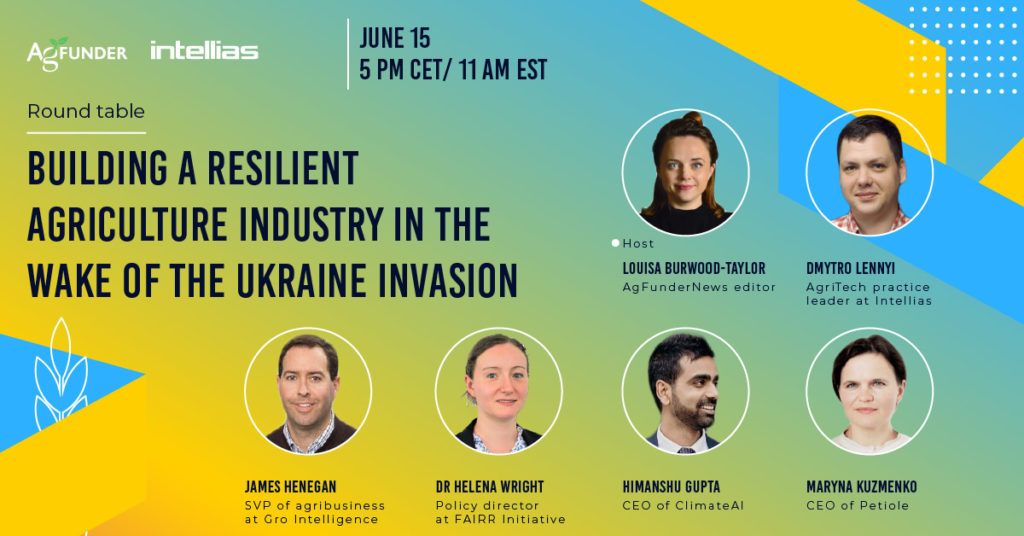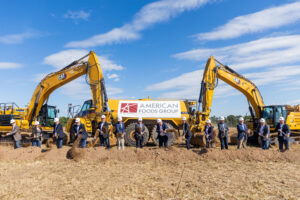Russia’s war against Ukraine puts global food supplies at risk. Military actions in Ukraine’s north, south, and east have reduced the amount of land that farmers can sow. Additionally, Ukrainian export routes through the Black Sea and Azov Sea are blocked, and roads and railways are damaged. While Ukraine may still meet its own demand for food this season, countries that depend on Ukrainian exports of food products will experience shortages.
I’ve studied the Ukrainian agricultural market for years, and I’ve received many questions and concerns about the current situation. Now, I want to address the most commonly asked question: What can we do to help Ukraine and prevent a global food crisis?
What’s at stake?
Ukraine is the fourth largest agricultural exporter in the EU. It’s a global provider of barley, corn, and wheat. Last year, Ukraine provided 12.8% of total global corn exports and 10.5% of wheat exports. It’s also the largest exporter of sunflower oil. In 2021, Ukraine received 40% of worldwide revenue for sunflower oil exports.
Unfortunately, the country’s 2022 sowing season, which started at the end of March, has seen only 6 million hectares sown (80% of last year’s area). In addition, the blockade of Ukrainian ports has reduced Ukraine’s ability to deliver grain. Ukraine is now deprived of all water connections with the world through which it used to deliver the majority of its exports. According to deputy minister for digital transformation Taras Dzoba, Ukraine can now deliver just 300,000 metric tons of commodities per month, whereas it used to deliver 4.5 million tons.
The UN World Food Program (WFP) sources almost half of its supplies from Ukraine. This means that canceled shipments from Odesa will affect West Africa and other countries at high risk of hunger. Afghanistan, Ethiopia, Syria, and Yemen all largely depend on Ukraine’s wheat through WFP food procurements.
Ukrainian government’s measures
The Ukrainian government has already taken some measures to prevent a global food crisis.
Internal tax reform
On March 15, President Zelensky signed a new internal tax law that cancels inspections for all businesses. It also establishes a tax rate of 2% of turnover for entrepreneurs instead of income tax and a value-added tax. The new tax law even allows small businesses to pay a flat tax voluntarily.
Credit program for agricultural enterprises
Ukraine’s Ministry of Agrarian Policy and Food together with the Ministry of Finance have established a credit program for farmers. It allows agricultural enterprises to take up to 60 million UAH in credit with 0% interest for 6 months.
Victory gardens
Funded by Global Affairs Canada, Support to Ukraine’s Reforms for Governance (SURGE) has launched a Victory Gardens campaign. Similar to governmental agricultural initiatives during WWI and WWII, this program encourages citizens to plant fruit, vegetable, and herb gardens at their private residences to secure their own food resources and to support local communities with homegrown food.
How the global community can support agriculture in Ukraine
Although Ukraine’s government is already working to solve some issues, in the current situation the assistance of the international community is vital. To reduce risks to the global food supply, world leaders should support Ukraine’s agricultural sector. Here’s how they can help.
1. Discounts and soft loan programs for equipment and agricultural machinery
The south, east, and north of Ukraine have suffered most in the war to date. Unfortunately, those are the regions where the majority of Ukraine’s agricultural production takes place. Chances are lots of equipment and agricultural machinery has been lost. Providing discounts and soft loan programs is critical so farmers can buy new equipment and replace what has been damaged.
2. International credits
The support of international financial institutions, such as the European Bank for Reconstruction and Development (EBRD), will help Ukrainians restore farming and prepare for the harvest season. For instance, international credits can help the country deal with diesel shortages and a lack of pesticides.
3. Improve quotas for Ukrainian products
Several of Ukraine’s food and product exports, such as honey, are subject to tariff quotas in the EU. Ukraine fills these quotas every year. For 2022, the quota is set at 6,000 tons, the same as the previous year. Increasing duty-free quotas will increase the volume of exported food.
4. Provide innovative storage and logistics solutions
According to Taras Dzoba, 15 million metric tons of commodities are now stuck in Ukraine. Most if not all of them will spoil before leaving the country. Companies with innovative storage facilities should assist in the preservation of current food supplies.
5. Establish new routes and ways to transport Ukraine’s products
Before the war, Ukrainian ports handled nearly 90% of the country’s exports. With the Russian blockade of the Azov and Black Seas, Ukraine needs to establish new transportation routes. Poland is planning to build a “dry port” that will be the equivalent of a seaport near the Ukrainian border. It will become a center for deliveries of goods from Ukraine to other countries and connect to various international routes.
6. Simplify contracts for logistic services and prepare for the immediate handover of products
These measures alone will not help Ukraine effectively and safely transport commodities, but they will make transportation a bit faster.
Let’s stand together
In a recent article, Bloomberg suggests that the world’s agricultural market is sure to suffer due to the events in Ukraine; the whole global community will bear the consequences of the Russian-caused food crisis, not just the two countries directly involved.
Luckily, that pessimistic future is not a given. I do believe that if global leaders unite for a common cause, we can mitigate some of the consequences. So let’s act now.






